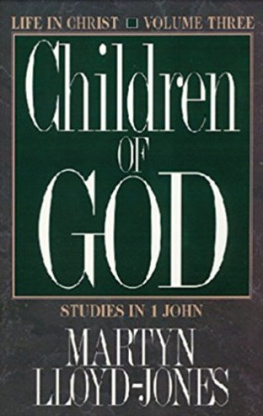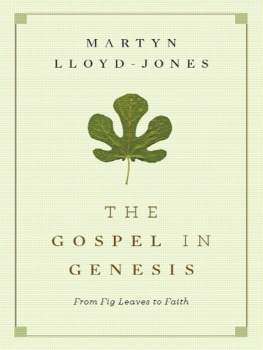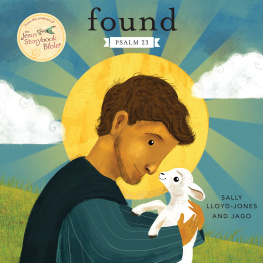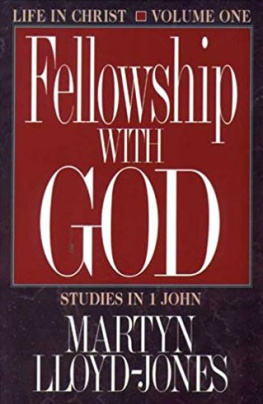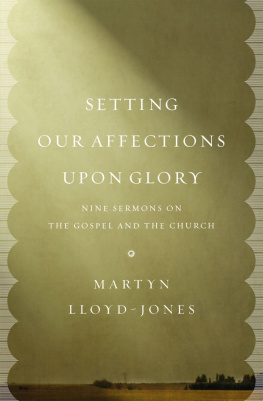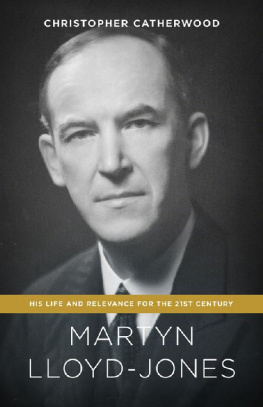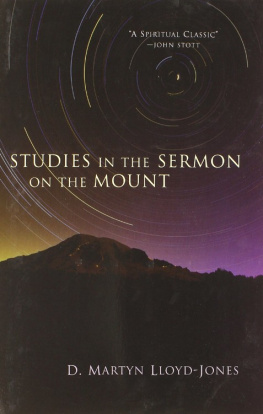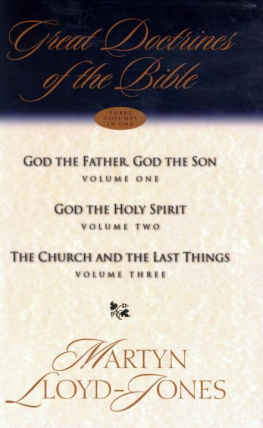D. Martyn Lloyd-Jones - Children Of God
Here you can read online D. Martyn Lloyd-Jones - Children Of God full text of the book (entire story) in english for free. Download pdf and epub, get meaning, cover and reviews about this ebook. genre: Religion. Description of the work, (preface) as well as reviews are available. Best literature library LitArk.com created for fans of good reading and offers a wide selection of genres:
Romance novel
Science fiction
Adventure
Detective
Science
History
Home and family
Prose
Art
Politics
Computer
Non-fiction
Religion
Business
Children
Humor
Choose a favorite category and find really read worthwhile books. Enjoy immersion in the world of imagination, feel the emotions of the characters or learn something new for yourself, make an fascinating discovery.
- Book:Children Of God
- Author:
- Genre:
- Rating:3 / 5
- Favourites:Add to favourites
- Your mark:
- 60
- 1
- 2
- 3
- 4
- 5
Children Of God: summary, description and annotation
We offer to read an annotation, description, summary or preface (depends on what the author of the book "Children Of God" wrote himself). If you haven't found the necessary information about the book — write in the comments, we will try to find it.
Children Of God — read online for free the complete book (whole text) full work
Below is the text of the book, divided by pages. System saving the place of the last page read, allows you to conveniently read the book "Children Of God" online for free, without having to search again every time where you left off. Put a bookmark, and you can go to the page where you finished reading at any time.
Font size:
Interval:
Bookmark:
And he that keepeth his commandments dwelleth in him, and he in him. And hereby we know that he abideth in us, by the Spirit which he hath given us. 1 John 3:24
In this verse we have the first specific and explicit mention of the Holy Spirit in this particular passage. We have had in the second chapter an indirect reference to Him, where the Apostle has reminded us of the unction which we have from the Holy One and the anointing which we have received of Him. But here is the actual expression, the Spirit with a capital S. It is not a reference to some vague spirit that is in man, in the sense in which we often use the word when we speak of mans nature or temperament or character. It is a reference to the gift of the Holy Spirit, and here John is introducing a further proof of our sonship. The theme which has been occupying him right through this third chapter has been that we are the children of God. That, he says, is one of the most vital things which we can ever grasp in this life and in this world.
Now John, you remember, is writing to Christian people in the first century who were having a very difficult time, knowing persecution and suffering and misunderstanding. The world then was remarkably like the world today, and John sums it all up in this phrase: We know that we are of God, and the whole world lieth in wickedness (1 John 5:19). That is his objectto help, to comfort and to encourage these Christian people who were living their Christian lives in such a difficult and gainsaying world. There are certain things, he says, which they must hold in their minds. The first is that they are in fellowship with God and are walking with Him. Then the second great theme is that of sonship, that we are the children of God. The Christian is nothing less than thatyou cannot be a Christian without being a child of God. John holds up this glorious concept, you remember, in those three noble verses at the beginning of this chapter, with their almost incomparable statement of the Christian position.
But John, with his practical pastoral mind and intent, was most concerned that these people should show it. It is no use talking about being children of God unless we really are giving practical proof of that fact now. Unless we give that practical proof, we will not have the assurancethat is his theme. And let me remind you, he says, that there are certain things that we must never lose sight of in that connection. The first is, we must keep the commandments: He that doeth righteousness is righteous, even as he is righteous (1 John 3:7). Then he comes on to the second great proof of our sonshipthat is, our love for one another, love of the brethren: We know that we have passed from death unto life, because we love the brethren (1 John 3:14).
And now here he tells us that there is still an additional proof of our sonship, and that is the reception of the Holy Spirit: Hereby we know that he abideth in us. If we are children, it means that He is in us and we are in Him; and if you want proof of that fact, says John, here it isby the Spirit which he hath given us. So, we are face to face with this great doctrine and truth concerning the Holy Spirit. It is to be found everywhere in the New Testament, and it is absolutely vital and essential to the true Christian position and to Christian experience. And here, in this one verse, John presents the doctrine to us in what seems to me to be a most interesting manner. He combines what we may call the objective and the subjective in one verse. He reminds us of the great fact, and yet he reminds us at the same time of the complement of the fact in personal experience.
It is to this that I am anxious to call your attention now, and I think that the best division of our subject is this: First of all we must consider the gift or the place of the Holy Spirit in the plan of salvation, and we look at that in this way: First, we must look at the fact, about which we can read in Acts 2. We are confronted there with a fact of which we must never lose sight. That is history, and if we do not realise that it is history, quite as much as the various other facts that are recorded in the Bible, then our whole position is wrong.
There in Jerusalem on that Day of Pentecost so long ago, this astounding and amazing thing happened. There that group of people met together in the upper room, and suddenly this tremendous thing happened. The Holy Ghost descended upon them as cloven tongues like as of fire (Acts 2:3); the whole place was shaken, and these people were transformed. This wonderful thing happened to them, and they began to speak; they had the gift of speaking in other languages, so that the people, who had come together at Jerusalem for the feast of Pentecost from the various parts of the then inhabited and civilised world, all heard these men speaking in their own languages and telling about the wonderful works of God. That is just literal, actual history, and this day on which I am preaching to you1 does insist upon our emphasising that fact. Of course, we do have to deal with it subjectively, but the big thing we must start with is this objective fact, this historical event that there in Jerusalem, literally and actually, the Holy Ghost came down upon the early churchthe gift was given.
Now many authorities believe that this verse is a reference to that and that only, that it is a direct pointer to the Day of Pentecost at Jerusalem. Well, to say the very least, that is included, and that must always come first. We realise that from that moment onwards the Christian Church was constituted in a new sense and began to function as the Christian Church in a way which it had never done before, and we realise too that we today are just a continuation of that which began there so long ago. It is, I say, a facta mighty fact, one of the great turning points of history, one of the most significant events in the whole story of the human race.
That, then, is the fact, but let us also consider something of the meaning of this fact. We are still discussing the place of the Holy Spirit in the plan of salvation. What was the significance and the meaning of that which happened there on the Day of Pentecost? Here are some of the things.
That was the last step in the series of great acts or enactments in connection with the plan of salvation. Now, the glory of our position as Christians is that we do not so much believe a teaching as that we believe truths which result from events and happenings. Christianity is not a philosophy; it includes philosophy, but it is not just that. You are not a Christian in the sense that you may be a Platonist or an Aristotelian. It must not be thought of like that. We are saved not by believing a truth; we are saved because of what God has done for us.
Therefore this event on the Day of Pentecost at Jerusalem is an event that you must put into a certain series. You start way back in the Garden of Eden when man fell and when God spoke and gave a promise. Then you come on to all the history that is recorded in the Old Testament. The Flood, the call of Abraham, the isolation of that man and the turning of him into a nationthat is all God doing something, it is God acting. Then you go on right through the Old Testament history; the going down into Egypt, the going out of Egypt, the crossing of the Red Seaall these are events, part of the great plan of salvation.
And when you turn to the New Testament, there are crucial facts which we must always hold on to. Consider the birth of Jesus Christ in Bethlehemthat fact is absolutely essential. He, the Son of God, was there born as a babe and placed in a manger; this is the Incarnation, that shattering, cataclysmic event when God came on earth in the form and in the likeness of human flesh. Then you go on and you see certain other crucial facts and events. They are all of vital importance, but some we obviously must single out.
Font size:
Interval:
Bookmark:
Similar books «Children Of God»
Look at similar books to Children Of God. We have selected literature similar in name and meaning in the hope of providing readers with more options to find new, interesting, not yet read works.
Discussion, reviews of the book Children Of God and just readers' own opinions. Leave your comments, write what you think about the work, its meaning or the main characters. Specify what exactly you liked and what you didn't like, and why you think so.

